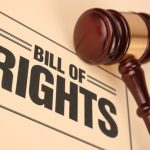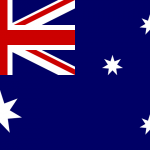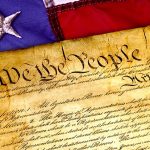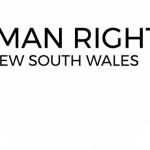Australia Needs a Bill of Rights: An Interview with MP Andrew Wilkie

Over recent years, both the federal and state governments have enacted countless laws that encroach upon the basic liberties and legal safeguards of Australians.
At the national level, the right to privacy has been sacrificed under the federal government’s mandatory metadata regime – which allows Australian security agencies warrantless access to data information about the phone calls, emails, text messages and internet sessions of individuals.
In a speech last year, NSW Chief Justice Tom Bathurst informed his audience that he had identified 397 legislative encroachments upon three rights alone in the state of NSW. These were the right against self-incrimination, the presumption of innocence, and the right to legal professional privilege.
This systematic whittling away at our safeguards and protections has triggered renewed calls to establish a bill of rights at both the state and federal levels.
Our rights are not protected
Australia has ratified the seven major international conventions that define and protect people’s “inalienable human rights.” This means the nation has committed to uphold these values at the international level, as well as providing these basic protections to those within its borders.
However, as Australian governments continue to enact laws and provisions, often in the name of national security, that actually encroach on the rights of all, it’s been shown that being a signatory to the international rights covenants and conventions doesn’t ensure safeguards domestically.
A bill of rights would protect citizen’s freedoms and limit government power to remove them.
Currently, Australia is the only western democracy without such a bill. And the debate about establishing one has gone on for decades. But, successive Australian governments have repeatedly rejected moves to protect the rights of citizens under the law.
Incremental steps
The United States bill of rights is often seen as the shining example, when it comes to provisions that guarantee personal freedoms and rights. It’s enshrined in the US constitution. However, over recent years, nations, such as the UK, Canada and New Zealand, have enacted statutory rights bills.
The statutory bill of rights model has already been adopted in some Australian jurisdictions. The ACT passed the Human Rights Act in 2004, while the Charter of Human Rights and Responsibilities Act 2006 was enacted in Victoria. And currently, there’s a push for similar bills in NSW and Queensland.
An Australian bill of rights
Independent MP Andrew Wilkie is a vocal proponent of establishing a bill that would guarantee Australian’s rights under the law at the federal level. On August 14, he introduced the Australian Bill of Rights Bill 2017 into the House of Representatives.
Mr Wilkie told parliament that current protections provided by domestic legislation are “simply way too narrow.” And his bill, which is modelled on a similar piece of legislation from 2001, would protect against the “alarming increase in the power of government in Australia.”
Sydney Criminal Lawyers® spoke with Mr Wilkie, federal member for Denison, about the climate in Australian politics that makes a rights bill necessary, what his piece of legislation would establish, and the ongoing lack of support from the major parties.
Firstly, Andrew, over recent months, there’s been a renewed focus on the issue of a bill of rights at both the federal and state levels.
Why do you think there’s such an interest in establishing a bill of rights in this country right now?
There’s long been an interest in a bill of rights, because we obviously don’t have one and there would be merit in having one.
But, in recent years, the value of a bill of rights has become more important, because of the increasing power of the state. And many people feel that their rights have been eroded on account of laws that have been passed by a range of governments.
A very good example is all the national security reforms. But, there are many other good examples, where people sense there is an increasing power of the state at the expense of their rights. So, that has helped to sharpen the focus on the need for an Australian bill of rights.
Also, the fact that Victoria, in recent years, legislated a bill of rights. That was a really important development. It showed that a government can take a leadership role and drive reform like this. And leadership and consultation can bring a lot of the community on board.
By the time it was legislated, support for it had grown strongly.
On August 14, you introduced the Australian Bill of Rights Bill 2017 into federal parliament. What does this bill seek to establish?
In essence, it would enshrine a bill of rights in Australian law. And that bill of rights would prevail over any Commonwealth, state or territory law that is inconsistent with it.
It would allow people to seek a remedy with the Human Rights Commission if any of the rights in the bill have been infringed upon.
It’s consistent with all of the international conventions to which Australia is a signatory. For example, the International Covenant on Civil and Political Rights, the International Covenant on Economic Social and Cultural Rights and the Convention on the Rights of the Child.
And it covers a really broad range of areas, including freedom of speech, freedom of movement, the right to education, the right to work and the right to a fair trial.
So, would this bill then set up a system where the courts audit each new piece of legislation to interpret whether it is consistent with human rights standards?
If the bill of rights comes about, then every new piece of legislation – not just the federal parliament, but all state and territory parliaments – would have to be consistent with the bill of rights.
The bill of rights has primacy over everything else.
But, it would also provide a benchmark for the review of existing laws. And the onus would be on government to review its existing laws, and amend them where necessary.
The New Zealand Bill of Rights was enacted in 1990. My understanding is that it doesn’t allow a citizen to take legal action against the government if it breaches a right.
Would your bill establish that sort of legal recourse for an Australian citizen?
Yes, it provides a mechanism for people to seek a remedy through the courts.
What sort of safeguards and systems are in place at the moment to protect the rights of Australian citizens at the federal level? And how effective are they?
There’s very few safeguards. There’s only five human rights acts. There’s the act that establishes the Human Rights Commission, but that really is just to establish the commission.
There’s only four substantive acts to protect the rights of people. There’s the Age Discrimination Act, the Sex Discrimination Act, the Disability Discrimination Act and the Racial Discrimination Act.
Unless, someone’s concern falls within those four acts, which are very narrow, then there’s no protection. And I think that’s remarkable.
There’s nothing there to protect our freedom of speech, our freedom of movement, our right to education, our right to work, or our right to a fair trial.
There’s just simply no framework to protect those things. And these are really basic.
When I say to people that they don’t have protection of a lot of these rights in law, people are astounded. They just assume we do. But of course, we don’t.
In 1998, the UK enacted the Human Rights Act, which is a similar piece of legislation. What sort of impact has that bill of rights had over there?
It certainly improved things it that country, as it has in other countries where they have a bill of rights.
Importantly though, it hasn’t resulted in the sorts of problems that critics of a bill of rights would have you believe. The critics in Australia say, “It then turns it into a matter for the courts. And our courts will be clogged with people taking action over all sorts of things.”
The experience in countries like New Zealand and the UK is there hasn’t been a substantial increase in work for the courts, because in fact now when bills are created, the onus is on the government, and the government knows it. They have to create things consistent with the bill.
It hasn’t led to all of the horrid downsides that critics would have you believe.
You mentioned national security reforms. But, what other recent laws and developments in Australia would you say make it pertinent to establish a bill of rights in this country?
Some examples are recent attempts to clamp down on the rights of workers and organised labour, as well as the way that detainees are treated in detention centres in Australia and threats to muzzle doctors employed in the immigration detention system.
And lastly, your private member’s bill is currently before federal parliament. What sort of support is there in parliament to establish such a bill?
Regrettably, I’m not aware of any substantive support from the major parties.
It hasn’t been selected by the selection committee to be brought onto debate. So, it’s just sitting on the notice paper. And that indicates there is no support on the selection committee, which is controlled by the government, and populated by the government and opposition members.
There’s the support of the crossbench. I don’t know about Bob Katter. But, my other colleagues Adam Bandt, Rebekha Sharkie and Cathy McGowan all support it.
But, that’s been fairly consistent over the decades, that the major parties have been against a bill of rights.
Exactly, and please don’t ask me to explain that. I just think the value of it is self-evident. And there’s a pressing need. This is another area of reform where the major parties are entirely out of step with the community.
Of course, there’s a range of views in the community, and the idea has its critics.
There’s countless suggestions on how it would look. And how to improve what I produced. Starting with what it is even called. Whether it is called a charter of rights, a bill of rights, or a charter of rights and responsibilities. And whether it does go down that responsibilities path as well.
I’m open-minded to what it would exactly look like in the end.
But, when you explain all this to members of the community, the vast majority of people see the merit in it. And the parties are out of step with that.






